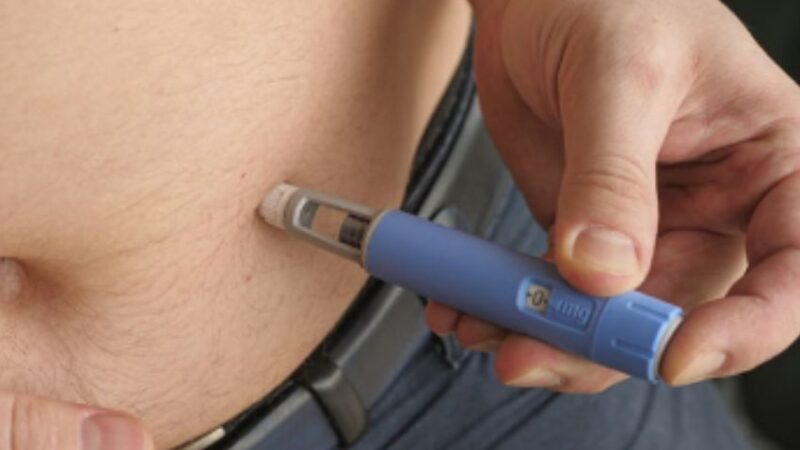These Are The 6 Most Important Vitamins For Muscles
One of the objectives of exercising and keeping fit is to improve your general health while shedding off unwanted fats from the body. But a better reason why you should consider hitting the gym is to gain muscle mass. The lean mass is necessary for checking weight and keeping the body strong and healthy.

While working out, it is essential to understand that your body needs nutrients to perform at its best. Apart from the carbohydrates that give you the energy to exercise more, you will need to eat proteins before and after the workout to regenerate the muscles. Vitamins are also essential, and you should not forget them in your diet.
These are six of the most important vitamins you need to eat to boost muscle synthesis and performance.
1. Vitamin C
If you asked anybody about any vitamins they know, vitamin C would be the first one to pop out. But how many people know that vitamin C is not only necessary for protecting the body against many infections? Wait, this vitamin, and any other types of foods, do not protect against COVID-19. Keep your social distance and observer hygiene to stay healthy even as you exercise.
In muscle production exercises, vitamin C helps to regulate iron in your body. This helps the body to keep a steady supply of the energy you need for exercising. The vitamin is also one of the basic “catalysts” that enhance the digestion and absorption of carbohydrates to give you more energy. (I guess now I know why I am always tired even after eating). Do not forget that this vitamin is also an antioxidant that protects your body from damage by free oxygen radicals.
Vitamin C is abundant in most green vegetables and fruits. Eating fresh fruits and moderately cooked vegetables will help your body to obtain the necessary supply of vitamin C.But, you need to remember that this vitamin is water-soluble. Therefore, the body cannot keep some supply for use when necessary. You have to add it to your diet every day.
2. Vitamin D
When I was young, I used to hear my parents and teachers telling me to sit in the sun for some minutes a day to get a free supply of vitamin D. The vitamin is said to prevent rickets. And, yes, in some way. Vitamin D is necessary for the absorption of Phosphorus and Calcium in the body. While Calcium strengthens the bones to help you to lift heavy weights, it is also one of the building blocks of muscle tissues.
Phosphorous, on the other hand, is essential for everyone that is working out and needs to build more muscles. Inside the cells, the production of various proteins and several activities depend on energy supply. The energy is available in the form of Adenosine triphosphate (ATP). From the name, you realize that the body needs a supply of phosphorus for ATP production that powers the activities in the body.
Apart from the sun (that is if you are tolerant of UV), you can obtain the vitamin from various animal products including milk, eggs, and liver (beef). You can also use beans, fatty fish, and greens like kales and spinach.
3. Vitamin B12
Your body needs energy for the workout. Red blood cells play a major role in ensuring that all parts of the body receive a sufficient supply of oxygen for burning down food for energy production.
Vitamin B12 is one of the requirements that facilitate the production of red blood cells. For you to succeed in muscle building, you need enough supply of oxygen. Vitamin B12 becomes a part of your diet that you will not want to avoid. The vitamin is also essential in coordination between the brain and the muscles.
People who do not use animal products are at most risk of suffering a vitamin B12 deficiency. Some of the sources you should consider for the supply of the vitamin include fish, soy, poultry, fortified cereals, and dairy products. Additionally, Supplementing your body with testosterone cypionate can help you to perform better and recover faster.
4. Vitamin E
You might have heard that vitamin E helps you to look younger with smooth skin. Apart from protecting you against the UV rays of the sun, vitamin B is also a natural antioxidant. That is the major role that makes it essential for muscle production.
While working out, you tend to breathe more air. It is the extra unused oxygen in the body that breaks up to form simple atoms. In this state, oxygen becomes unstable and starts to scavenge for something to attach to. You can say that free oxygen particles start to oxidize everything they come across in the body, and in the process, it damages them. That is how tissues and muscles get damaged.
As an antioxidant, vitamin E will neutralize the free radicals and prevent them from damaging the tissues after a workout. But the vitamin is also required for detoxification. By removing the harmful compounds from the body, you remain strong with little chances of infections that could hinder you from your objectives.
Vitamin E is commonly present in nuts including peanuts and almonds. Wheat, soy, corn, eggs, and vegetable oils are also good supplies of vitamin E. This vitamin is fat-soluble, and taking too much supply may cause some side effects including fatigue – which could hinder you from performing. Moderation is advised when using this vitamin.
5. Vitamin A
Eat carrots and pepper. That is the statement that came from our parents when we said that we cannot see in the dark. Simply put, vitamin A is known for aiding with vision and protecting the eyes from age-related macular degeneration. But the vitamin has more functions in the body, and it can help athletes to perform better and gain muscle mass.
Firstly, vitamin A works by creating glycogen from the food we consume. Glycogen is a form of stored energy (read inactive glucose) which your body will use when running out of fuel during an exercise. Secondly, this vitamin is a key player in the protein synthesis process – which means that tissue and muscle formation relies on its availability.
Like some other vitamins, vitamin A is an antioxidant. It helps to protect the muscles so that you do not fall to pieces due to oxidation effects on the muscles and body tissues. Being a necessary element for the formation of strong bones, the vitamin is vital for your weightlifting exercises.
Although vitamin is fat-soluble, it is easy to lose it from the body. Both lifestyle and environmental factors determine how this vitamin can stay in your body. Avoiding alcohol is one of the ways to protect the body against losing vitamin A. As mentioned earlier, you can get the vitamin from carrots, fatty fish, and eggs.
6. Vitamin B6
Like the other major families of vitamin B, B6 is essential in the process of muscle synthesis. You will want to have a sufficient supply for you to get those abs you have been suffering for. But that is not all. Vitamin B also facilitates the metabolism process of proteins.
We mentioned that you will want to consume more proteins when exercising to increase the production of body muscles. Vitamin B6 helps in breaking down the consumed proteins to make it usable by the body. As you know, the body does not use food particles as they are. Proteins have to be broken down into nitrogen compounds that can easily be absorbed and transformed through various biochemical reactions to form the tissues.
Vitamin B6 is readily available, waiting for you in your next street grocery. Eating bananas will supply you with this vitamin. Other sources include fatty fish and beef liver. Sorry for the vegans. You can substitute the beef with chickpeas.
Summing Up
Building muscles is one of the ways to ensure that your body stays strong and healthy. Muscles are not just for the show, but they can help you to perform better even in athletics and in private tasks. To make more muscles, you need to exercise more, and food becomes essential in the process.
While proteins help you to generate the muscles and carbohydrates provide you with the energy you need for the workout, you must not forget the essence of vitamins in the whole process. Consume sufficient amounts of the vitamins to improve your muscle production. If you think there is a scarcity of any of the vitamins, you may consider taking a supplement.

Deepa Mahar is an independent blogger and admin of DeepAdvices who is exploring the beauty of the blog writing from a variety of subjects and books to health, science and others. She believes the blog would be helpful to the reader in the context of knowledge. She is post-graduated with a degree of Biotechnology.





